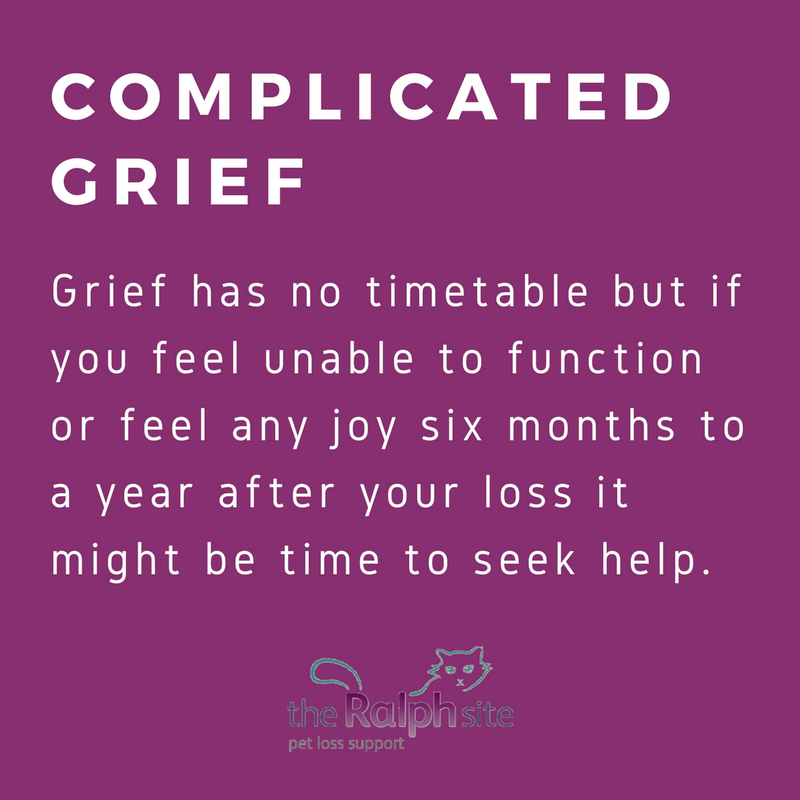|
Living with Complicated Grief
What is complicated grief?Losing a loved one changes us and our lives forever. Grief puts a strain on normal life and it usually takes a long time to start to adapt to life without them. Even then there may be days where we feel like we did in the early days, this overwhelms us but we gradually learn to cope and bounce back. When these intense emotions feel constant and continue for a long time grief can become 'complicated'. We may feel stuck and find it difficult to work out what we need to do to cope. Some people cope by closing off from their feelings. Giving ourselves time to retreat can be a healthy way to adjust to changed circumstances but if this happens for an extended period it may lead people to withdraw from daily life and become isolated. Complicated grief can upset our lives by affecting our ability to carry out daily tasks, communicate, look after ourselves and this can lead to ill health. What causes complicated grief?One thing is sure, complicated grief isn't a choice. It's due to a combination of difficult circumstances which leave us unable to accept and come to terms with our loss. Complicated grief happens when something stops the natural healing process from helping us to adjust to our changed world. This can include:
Lack of support and mental health conditions can also make grief harder to cope with. But sometimes there is no obvious cause. How do you know if you're experiencing complicated grief?The symptoms include:
Grief has no timetable but if you feel unable to function or feel any joy six months to a year after your loss it might be time to seek help.
What can you do if you feel this way?There are various things we can do to help restore the natural healing process of grief. Our feelings aren't constant so different things may be helpful at different times.
In the UK The Blue Cross offers a pet bereavement support service. You can call them or contact them using the online form. Remember, you're never alone, your friends at The Ralph Site are all here for you. ResourcesThere is a lot of information available to help people who are suffering complicated grief including books and articles, websites, support groups and therapists. A selection of these are listed below and there are many others. TherapistsIf you would like to find a therapist to help you please find the regulatory body governing therapists where you are and search their register for a therapist with experience of helping people with complicated grief. You can call and speak with them before you arrange an appointment and find out what their approach is, if they think they can help you, and if you like the sound of them. If you don't like a particular therapist or their approach try another, there are many types of therapy and you need to find the one that works best for you. Books, articles and downloadsLiving with complicated grief – Professor Craig A. White, Sheldon Press, 2013 The other side of complicated grief – Rhonda O'Neill Scientific American – Shades of grief Mindfulness for prolonged grief: a guide to healing after loss when depression, anxiety and anger won't go away – Sameet M. Kumar WebsitesCruse Bereavement Care – About complicated grief The Other Side of Complicated Grief The Center for Complicated Grief Psycom – Complicated Grief self-assessment test |

